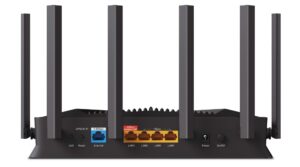The 8 Best Payroll Software and Services of 2023
Payroll software empowers business owners, HR departments and accounting teams to tackle employee pay in-house. The right software can streamline tedious tasks like tax filing, which in turn frees up time to spend on other aspects of business management.
Gusto is the best payroll software solution for many small businesses because of its thorough automation, comprehensive payroll tools and optional employee benefits with built-in administration. But if Gusto isn’t the best fit for you, we have seven other payroll solutions for you to consider. Below, we’ll weigh their features, strengths and weaknesses.
Jump to:
Top payroll software: Comparison table
Every payroll software on our list can be used to determine paycheck amounts, automate employee payments, generate payroll reports and calculate payroll taxes. All of our top payroll services also include unlimited payroll runs, meaning users can run payroll an unlimited number of times per month without incurring an extra fee.
The top payroll management systems differ in terms of starting price, app availability, third-party integrations (especially accounting software integration), time tracking and employee benefits administration.
| Feature | Starting base price | Starting per-payee price | Free trial | General ledger integration | Learn more |
|---|---|---|---|---|---|
| Gusto | $40/mo. | $6/payee | No | Yes | |
| ADP | Custom quote | Custom quote | Up to 3 mos. | Yes | |
| Rippling | Custom quote | $8/payee | No | Yes | |
| OnPay | $40/mo. | $6/payee | 30 days | Yes | |
| Papaya | N/A | $12/payee | Unlisted | Yes | |
| Paychex | $39/mo. | $5/payee | No | Add’tl fee | |
| SurePayroll | $19.99/mo. | $4/payee | Up to 6 mos. | Yes | |
| QuickBooks Payroll | $45/mo. | $5/payee | 30 days | Yes |
Data accurate and verified as of 6/15/2023.
The year’s best payroll software
The best payroll software for most businesses isn’t necessarily the best payroll software for your business. As you weigh your options, consider what level of customer support you need, whether you need a scalable product and how many employees you hope to eventually add to your company.
Perhaps most importantly, make sure the payroll software you choose can support your business’s size. Several of the payroll software we review below is geared toward small and midsize businesses, though some (like ADP and Rippling) can support large enterprises as well. To learn more about payroll software specific to your business’s size, see the following reviews:
Gusto: Best small-business payroll software

Gusto’s modern payroll and HR platform offers payroll processing, employee benefits administration and talent management solutions. As one of the most popular small-business payroll providers, Gusto integrates with dozens of popular third-party applications, including accounting solutions like QuickBooks Online and Xero.
Along with third-party integrations, Gusto’s payroll service also has built-in time tracking and project tracking features for higher-priced plans. These capabilities enable users to quickly track team hours and process time off requests and approvals. Workers can track their time by logging their hours on a computer or through Gusto’s employee mobile time-tracking app, which uses geolocation to verify hours.
Features
- Basic hiring and onboarding tools with all plans.
- Gusto-brokered health insurance options in 37 states.
- Additional employee benefit options include 401(k) retirement plans, commuter benefits, college savings accounts and free financial tools.
Pros
- Thorough employee self-service features with employee profiles, e-signature capabilities and easy access to documentation.
- HR features including performance reviews, employee surveys and access to certified HR experts (with pricier plans only).
- Automated payroll runs and automatic general ledger updates.
Cons
- Basic plan users don’t have access to customer support on weekends.
- Limited HR tools with cheapest plan, especially compared to all-in-one payroll systems like ADP and Paychex.
- High per-employee fee with pricier plans can make the solution too expensive for organizations with a greater number of employees.
Pricing
Gusto offers three pricing tiers:
- Simple plan: Starts at $40 per month, plus $6 per month per employee.
- Plus plan: Starts at $80 per month, plus $12 per month per employee.
- Premium plan: Pricing for this plan is available upon request.
If you pay contractors only, Gusto’s contractor plan costs $6 per contractor paid per month for six months, then $35 per month plus the per-contractor fee after that. Gusto also has an international contractor payment plan that lets businesses pay independent contractors in 95+ countries.
Learn more about Gusto by reading our in-depth Gusto payroll software review.
ADP: Best for midsize to large organizations

With ADP’s main payroll product for small and midsize businesses, RUN Powered by ADP, business owners can run payroll automatically and pay employees using multiple pay methods. Every plan comes with HR tools like new-hire reporting, onboarding assistance, background checks and built-in time and attendance.
ADP’s other payroll products include its PEO ADP TotalSource, ADP Workforce Now for midsize and larger businesses and ADP Global Payroll for multi-country companies and enterprises. If you’re interested in a cheaper product, Roll by ADP is an ADP-backed payroll app for the smallest of small businesses. It starts at $29 a month plus $5 per employee.
Features
- Multi-jurisdiction payroll processing features.
- Employee self-service portal access.
- Employee discounts, which provide workers with discounts on brand-name products and with local retailers.
- Exceptional reporting features, including thorough and customizable payroll and HR reports.
Pros
- Payroll management services across 140 countries.
- Integrations with an extensive range of popular third-party software systems.
- Robust, customizable reporting capabilities.
- Comprehensive optional add-on features include retirement plans, workers’ compensation insurance and employee health benefits.
Cons
- No transparent pricing online.
- Reporting features may have a higher learning curve for new users.
- State Unemployment Insurance management features only available with higher-priced plans.
Pricing
ADP doesn’t list the base prices for any of its payroll solutions online, including RUN Powered by ADP. Interested parties must contact ADP directly for a quote.
Many of ADP’s plans and products can be completely customized, and you can also request a customized demo when deciding whether or not to purchase ADP.
Learn more about ADP in our thorough ADP Workforce Now review.
Rippling: Best for automation

Rippling’s full-service payroll solution has excellent built-in compliance support and HR tools, which makes it a solid alternative to software that focus more on payroll than they do on HR (for instance, Gusto). Its payroll plan includes workers’ compensation insurance administration, customizable reports and excellent compliance oversight. Most notably, Rippling lets businesses build custom automations, including custom policies for syncing payroll data with your general ledger.
Rippling’s other HR products include time and attendance software, benefits administration, applicant tracking and learning management. Companies can also add Rippling’s IT and finance software to its HR and payroll plan, creating a customizable package that grows with companies as they scale from startups to international enterprises.
Features
- Employee health insurance benefits in all 50 states.
- Pre-built workflow templates for easier workflow customization.
- Built-in wage garnishment.
- Integration with top accounting software including QuickBooks Online, Xero, Sage, Oracle NetSuite and more.
Pros
- International payroll processing available.
- Easy-to-customize plans include only the modules you want.
- Thorough integration with every product in the Rippling suite.
- Comprehensive, customized automations for most business processes.
Cons
- Likely more expensive than many competitors, especially price-conscious payroll options like SurePayroll.
- Expensive plans are outside many small and midsize businesses’ budgets.
- Workflow automations can have a high learning curve for first-time users.
Pricing
Rippling charges $8 per employee per month on top of a standard monthly base fee. However, Rippling doesn’t list its base price online (though the site previously listed its starting price at $35 per month). Plus, each additional module costs an extra per-employee or per-month charge, which can cause package prices to add up quickly.
Dig deeper into Rippling’s features by reading our Rippling payroll review.
OnPay: Best for specialized payroll services

OnPay’s payroll software program helps businesses in all industries pay employees, offer benefits, deposit taxes and get solid HR assistance. Along with its general payroll services, OnPay also offers industry-specific payroll services tailor-made for more niche companies. For instance, OnPay’s bar and restaurant payroll solution includes features for processing tipped wages, employee onboarding and time-tracking software integrations.
All of OnPay’s payroll plans include an impressive amount of HR features (especially when compared to similar HR payroll solutions like Gusto). Features like compliance auditing and HR library access give small and midsize businesses access to HR tools they’d typically have to pay extra for. OnPay’s stellar payroll features include wage garnishment and free multi-state payroll — two services most of the other top payroll systems charge extra for.
Features
- Thorough, fee-free integration with third-party software like QuickBooks Online, QuickBooks Time, Xero and more.
- Ongoing COVID-19 compliance features, including a COVID-19 dashboard for managing tax credits and forgiveness.
- Free white-glove setup and data migration.
- Optional OnPay-brokered insurance benefits in all 50 states.
Pros
- Payroll features specific to businesses in specific sectors like restaurants, farms and agriculture, nonprofits, churches and clergy, and 500+ employee companies.
- Far fewer add-on fees than other payroll providers, especially pricy competitors like Paychex.
- Custom PTO policy creation with automatic PTO accrual, calendars, time-off requests and manager approvals.
Cons
- Phone, chat and email support limited to weekdays with only emergency email support available on weekends.
- One plan only, which may be less scalable for rapidly growing businesses (compared to multi-plan competitors like Gusto and Paychex).
- No international payroll options, including international contractor payments.
Pricing
OnPay payroll has just one plan that includes all of its payroll and HR features. It costs $40 per month as a base fee plus $6 per month per employee.
Learn more about OnPay’s payroll system by reading our comprehensive OnPay review.
Papaya Global: Best for international payroll

Papaya Global is one of the best payroll software programs for international businesses. Its global payroll services let employers pay workers in 12 local currency systems in more than 160 countries. Papaya can deposit paychecks directly into employees’ bank accounts, and it can also make third-party payments on your behalf to entities like the IRS or legally mandated pension accounts around the world.
Businesses that currently use a payroll provider other than Papaya and don’t want to switch can still take advantage of Papaya’s international payroll services by paying for its payroll platform license, which costs $3 a month per employee. Plus, Papaya has a global benefits package that helps businesses offer global health insurance and provide localized benefits.
Features
- AI-based compliance audits.
- Global finance, HR and payroll features rolled into one package.
- Local experts with knowledge on immigration, global compliance, equity, benefits and more.
- Third-party integrations with Oracle NetSuite, Workday and more.
Pros
- One of the most fully featured global payroll providers for U.S.-based companies.
- Access to payroll and benefits in more than 160 countries.
- Extensive international payroll library and compliance oversight.
Cons
- Starting price might be outside many businesses’ budgets.
- Fewer third-party integrations than some international payroll competitors.
- Comparatively slow software setup and implementation.
Pricing
In contrast to most global payroll system providers, Papaya Global lists its starting prices upfront:
- Full-service global payroll: Starts at $12 per month per employee.
- Payroll platform licensing: Starts at $3 per month per employee.
- Employer of record services: Start at $770 per month per employee.
- International contractor management: Starts at $25 per month per employee.
Learn more about whether Papaya Global will work for you by reading our in-depth Papaya review.
Paychex: Best for HR solutions

Paychex’s all-in-one payroll software solution includes HR and payroll tools with optional add-on employee benefits. Unlike single-plan solutions (such as Square Payroll or OnPay), Paychex has four payroll plans that are designed for startups, enterprises and everything in between.
While Paychex has more or less the same full-service payroll features as Gusto, it has a more robust set of HR features. In contrast to Paychex’s professional employer organization service, its payroll and HR software isn’t a total HR solution. However, each Paychex plan has far more HR tools and support than any of Gusto’s plans, including access to a comprehensive HR library, optional financial wellness benefits for employees and access to labor posters.
Features
- Multiple employee pay options, including direct deposit, paper checks and pay cards.
- Employee benefits options, including a financial wellness program, employee assistance programs and insurance benefits.
- Thorough human resource features with higher-tier plans, including an employee handbook builder and learning management system.
Pros
- Access to an impressive range of optional employee benefits offerings.
- Dedicated point of contact with 24/7 access to the customer support center.
- Impressive HR library resources available with every plan.
Cons
- Paychex is a pricier option compared to payroll services provided by other vendors, and pricing information for its higher-tier options is not available online.
- Additional fees to process year-end W-2s and 1099s.
- Additional fees for general ledger and accounting software integration.
Pricing
Paychex offers three different pricing tiers for its HR solutions:
- Paychex Flex Essentials: Costs $39 per month, plus $5 per employee.
- Paychex Flex Select: Custom quote.
- Paychex Flex Pro: Custom quote.
Learn more about Paychex by reading our in-depth Paychex software review.
SurePayroll: Most affordable payroll

SurePayroll is both the cheapest payroll provider on our list of best payroll software as well as one of the cheapest payroll providers overall. Its lower price point doesn’t prevent SurePayroll from offering extensive payroll features — in some cases, more features than its paid payroll competitors. For instance, both SurePayroll plans include new-hire reporting, free two-day direct deposit and access to HR features like labor law compliance posters.
Businesses can also use SurePayroll to find 401(k) retirement plans for employees as well as health insurance and workers’ compensation insurance. SurePayroll also offers optional hiring tools like pre-employment screening and background checks.
Features
- Optional health benefits backed by Paychex (SurePayroll’s parent company).
- Budget-friendly full-service or cheaper self-service plan options.
Pros
- Up to six months free for new customers.
- Extended customer service hours with better-than-average response time.
- Tax-calculation guarantee with self-service plan (plus industry-standard tax-filing guarantee with full-service plan).
- Optional employee benefits add-on with employee benefits administration.
Cons
- Two plans can limit scalability for growing businesses.
- Fewer HR features than HR-focused competitors like Paychex and ADP.
Pricing
SurePayroll has two plans, both with transparent pricing:
- Self-service payroll: Requires you to file payroll taxes on your own and costs $19.99 per month plus $4 per employee.
- Full-service payroll: Includes automatic payroll tax filing performed by SurePayroll and costs $29.99 per month plus $5 per employee.
SurePayroll also has a handful of optional add-on costs. For example, multi-state tax filing costs an extra $9.99 per state.
Find out if SurePayroll is a good fit for you by reading our SurePayroll review.
QuickBooks Payroll: Best user experience

QuickBooks Payroll integrates naturally with QuickBooks Online, Intuit’s leading cloud-based accounting software used by thousands of companies globally. Since Intuit’s cloud-based products were built specifically for non-accountant business owners, those who already manage their finances through QuickBooks Online should enjoy a relatively low learning curve if they add QuickBooks Payroll.
Although QuickBooks Payroll has a relatively high starting base price, its per-employee fee is notably low. As a result, regardless of its higher base price, QuickBooks Payroll is cheaper for small and midsize businesses with five or more employees compared to similar payroll programs like Gusto, ADP and OnPay.
Features
- Automatic payroll runs (available for businesses that pay salaried employees only).
- Optional 401(k) plans and healthcare benefits.
- Built-in time tracking through QuickBooks Time (additional fee).
- HR support center (with more expensive plans only).
Pros
- Transparent online pricing.
- Multiple plan options for growing businesses.
- 24/7 live support (with pricier plans only).
- Excellent integrations with Intuit QuickBooks suite of products and third-party software.
Cons
- No free workers’ compensation integration and administration with cheapest plan.
- Expensive add-ons, including time-tracking software.
- Key features limited to priciest plans only, such as expert review and expert support.
Pricing
Unlike some of its top competitors, QuickBooks Online Payroll lists its prices clearly and upfront:
- QuickBooks Payroll Core: Costs $45 per month plus $5 per employee.
- QuickBooks Payroll Premium: Costs $75 per month plus $8 per employee.
- QuickBooks Payroll Elite: Costs $125 per month plus $10 per employee.
New customers can choose between receiving 50% off QuickBooks’ base price for their first three months of service or signing up for a free trial of QuickBooks’ payroll software.
Learn more about QuickBooks Payroll by reading our QuickBooks Payroll review.
Key features of payroll software
Regardless of the software brand or type of payroll solution, all payroll software should calculate your employees’ paycheck amounts. Along with gross paycheck amounts, the software should also calculate deduction amounts for payroll taxes, healthcare premiums, retirement and other employee benefits, wage garnishments and optional deductions (like employee contributions to charitable funds).
From there, though, payroll software systems differ drastically in terms of their pricing and features. As you dive into the best payroll software companies listed above, consider which of the following features you need to effectively process payroll and how much you’re willing (and able) to pay for more expensive, comprehensive software.
Automatic payroll processing and tax remittance
Full-service payroll software, such as that offered by OnPay and QuickBooks Payroll, withholds payroll taxes on the employer’s behalf and remits those taxes to the IRS and other tax institutions on a regular basis. In contrast, self-service software will calculate tax amounts on your behalf but leaves the actual tax remittance up to you.
Self-service payroll software is cheaper than full-service software in terms of both per-payee pricing and monthly base costs. However, it saves businesses less time than full-service software, which often includes an autopilot feature for employers who want to run payroll without lifting a finger.
Payroll reporting
Most payroll software should include basic reporting features, starting with payroll reports that can be used to sync payroll expenses with your general ledger. Most should also include payroll tax withholding reports, employee paycheck reports, state unemployment tax reports and workers’ compensation insurance reporting.
More comprehensive software includes customizable reports with more in-depth analyses. For instance, payroll solutions like ADP and Paychex Flex include thorough human resource and benefits reports with impressive insights into payroll expenses and business growth.
Multiple pay methods
All payroll software should offer direct deposit as a primary employee pay option. However, the best payroll companies offer at least one other employee pay method, such as paper checks or app-based pay options like Gusto’s Wallet App or Square’s Cash App.
W-2 and 1099 form generation
At the end of each year, businesses must distribute tax form 1099 to contractors and W-2 to employees, plus file a copy of each tax form with the federal government. Nearly all payroll providers charge an additional fee to print and mail physical copies of each tax form, but most include electronic tax form access and distribution at no additional cost. (Paychex, which charges extra for W-2 and 1099 form preparation, is one notable exception.)
Compliance management
Payroll — especially payroll taxes — are heavily regulated by the federal government. Violations, accidental or not, can result in fines and more. As a result, the best payroll software includes thorough compliance management features that help you meet your legal obligations and avoid penalties for mistakes relating to tax law updates, wage garnishment orders and allocation rules.
Third-party integrations
Most payroll software integrates with third-party business apps like accounting software, HR products and time-tracking options. If you use cloud-based software to perform most business tasks, prioritize payroll software that automatically syncs with your favorite apps to keep all of them up to date on payroll expenses and employee data. Otherwise, you’ll spend more time entering data by hand.
How do I choose the best payroll software for my business?
1. Ask yourself key questions
To choose the right payroll software for your business, we recommend asking yourself several key questions that can guide your ultimate decision:
- How much can you afford to spend on payroll software each month? Make sure to consider both the base fee and per-employee fee.
- Do you primarily employ contractors, W-2 workers or a combination of both? Which types of employees do you anticipate having in the future?
- Which payroll features do you consider essential to your business’s operations? For instance, if you have hourly employees, payroll that syncs with time-and-attendance software is a must.
- How much support do you want (or need) as you set up your payroll software for the first time? Are you interested in white-glove setup with expert support, or do you feel confident setting up payroll software on your own?
- How large is your organization now, and how large do you plan for it to become?
- Which other software products do you currently use to keep your business up and running? How important is it to you to find software that syncs seamlessly with your existing apps and business processes?
- Do you really want to run payroll in house, or are you interested in a completely hands-off solution like a professional employer organization or outsourced accounting company?
2. Try the software yourself
While in-depth comparative reviews like ours can help you make informed decisions about which payroll software is right for you, the best way to find your ideal payroll software is to test it for yourself. Many payroll software providers offer a free trial (or free account setup), and those that don’t will usually offer free, customized demos that walk you through every aspect of the software.
3. Talk to an expert
If you’re a new business owner processing payroll for the first time, we strongly recommend speaking with an accountant to better understand your payroll responsibilities, including and especially your payroll tax obligations. An accountant can also point you toward the best payroll software from an accounting point of view, which could also impact your final software decision.
Our methodology
To review the best payroll software for businesses, we set up free accounts with payroll providers whenever possible to test the software for ourselves. When creating a free account wasn’t an option, we viewed demos and watched product reviews from customers detailing their experience with the software.
In all cases, we read product spec sheets, thoroughly reviewed each company’s website and reviewed verified user reviews on trustworthy third-party sites.
After conducting this initial research, we used a proprietary in-house algorithm to calculate star ratings for each brand, determine their use cases and rank each brand according to its score.
Frequently asked questions
What is payroll software?
Payroll software is a (typically cloud-based) tool businesses use to pay their employees. Payroll software calculates paycheck amounts for both hourly and salaried employees, including gross paycheck amounts, payroll tax amounts and other paycheck deductions.
Most payroll software automatically deposits employees’ net pay via direct deposit and includes features like payroll reports, optional HR features (like employee benefits administration) and time-tracking solutions for hourly employees who clock in and out.
How does payroll software simplify payroll processing?
Payroll software removes the need for business owners to calculate paycheck amounts by hand. It also simplifies record-keeping processes and helps businesses stay legally compliant with tax and labor laws.
Is payroll software good for small businesses or only for larger enterprises?
Payroll software is good for any business owner who wants to save time on processing payroll and reduce the possibility of making a critical error with an employee’s paycheck amount or payroll taxes. Businesses in any industry and of any size can benefit from streamlining their payroll processes with payroll software.
How much does payroll software cost?
Most payroll products charge a monthly base fee along with a per-employee fee, though some payroll providers like Gusto and Square Payroll waive their base fees for business owners that pay only contractors. Most entry-level software plans charge around $20 a month as a self-service base fee and up to $45 a month as a full-service base fee. Per-employee fees for entry-level plans can range from $4 per employee to $10 per employee.
There are also free payroll software options, like Payroll4Free, which offers free payroll for businesses with up to 25 employees. Alternatively, businesses can use spreadsheet software like Excel (which costs a monthly fee) or Google Sheets (which is free) to calculate payroll by hand.
However, these more affordable payroll-processing methods aren’t feasible for businesses with dozens of employees. They’re also less ideal for businesses that want to save time on payroll while reducing the possibility of human error.
Which payroll software is best?
Gusto is generally considered the best payroll software for most small and midsize businesses. It syncs with dozens of third-party products, includes both HR and payroll features and offers thorough automation for businesses that want to minimize the time they spend on payroll each month.
At the same time, Gusto isn’t the best payroll product for all businesses. As you try to decide which payroll software is right for you, consider factors like pricing, scalability, features, customer support and third-party integrations.














